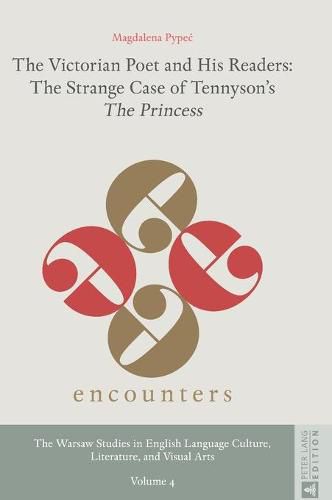Readings Newsletter
Become a Readings Member to make your shopping experience even easier.
Sign in or sign up for free!
You’re not far away from qualifying for FREE standard shipping within Australia
You’ve qualified for FREE standard shipping within Australia
The cart is loading…






This title is printed to order. This book may have been self-published. If so, we cannot guarantee the quality of the content. In the main most books will have gone through the editing process however some may not. We therefore suggest that you be aware of this before ordering this book. If in doubt check either the author or publisher’s details as we are unable to accept any returns unless they are faulty. Please contact us if you have any questions.
The author follows the interpretative pursuits of nineteenth-century readers and analyses Tennyson’s The Princess through the prism of their critical ideas. She analyses Tennyson’s reconsideration of gender binaries and women’s rights as well as the poem’s reliance on the aesthetics of the grotesque and its metapoetic games. The book rests on the premise that literature cannot be studied in isolation from its immediate socio-historical context. As such, poetry becomes an outcome of social and cultural negotiations, moving in a strange diagonal between the author and his public.
$9.00 standard shipping within Australia
FREE standard shipping within Australia for orders over $100.00
Express & International shipping calculated at checkout
This title is printed to order. This book may have been self-published. If so, we cannot guarantee the quality of the content. In the main most books will have gone through the editing process however some may not. We therefore suggest that you be aware of this before ordering this book. If in doubt check either the author or publisher’s details as we are unable to accept any returns unless they are faulty. Please contact us if you have any questions.
The author follows the interpretative pursuits of nineteenth-century readers and analyses Tennyson’s The Princess through the prism of their critical ideas. She analyses Tennyson’s reconsideration of gender binaries and women’s rights as well as the poem’s reliance on the aesthetics of the grotesque and its metapoetic games. The book rests on the premise that literature cannot be studied in isolation from its immediate socio-historical context. As such, poetry becomes an outcome of social and cultural negotiations, moving in a strange diagonal between the author and his public.